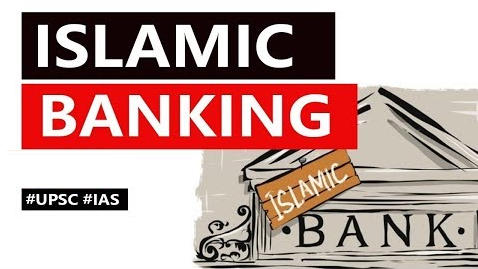Table of Contents
WHAT IS ISLAMIC BANKING?
- Islamic banking is also known as non-interest banking.
- It is a banking system that is based on the principles of Islamic or Sharia law.
- In Islam, money has no intrinsic value.
- Hence, it cannot be sold at a profit.
WHAT THE ISLAMIC LAW SAYS?
- The Islamic Law or Shariat prohibits the collection and payment of interest (RIBA) by lenders and investors.
- It also prohibits any sort of investment in businesses that are considered haram or against the principles of Islam.
- It is largely believed that these principles have been derived from the Quran.
MODERN ISLAMIC BANKING
- The 1st successful example of an Islamic Bank was seen in Malaysia.
- In 1963 Tabung Haji came into being with a total of 1,281 depositors which increased to 8,67,220 depositors, with deposits over one billion Malaysian dollars.
- It came into being due to high demand of interest-free money for pilgrimage (Hajj).
- The success of led to the formation of the Naseer Social Bank in Cairo in the year 1972.
- Later, the Islamic Development Bank with a view to promote economic development of the Muslim community in accordance with the Shariat laws.

HOW CAN BANKS FUNCTION WITHOUT TAKING INTEREST?
- In Islam, the investor should not make an “undue” profit from the hard work of the other.
- But it is permitted to follow a system of reasonable profit and return from investment where the investor takes a risk.
- Thus, Islamic banks make available accounts which provide profit or loss instead of interest rates.
WHERE THE MONEY IS INVESTED?
- The banks use this money collected by them and invest in something that is shariat compliant, that is not haram and does not involve high risks.
- Thus, businesses involving alcohol, drugs, war weapons etc. as well as all other high risk activities are prohibited.
- Islamic Banking, therefore, acts as an agent by collecting the money on behalf of its customers, investing them in shariat compliant projects and sharing the profits or losses with them.
- The Dow Jones Islamic Market Index came into being in the year 1999 for investors willing to invest in shariat compliant projects.


SPREAD OF ISLAMIC BANKING IN THE WORLD
- There are plenty of non-Islamic countries that are now opening Islamic “windows” in conventional banks. Like– China, Germany etc.
- UK was the first non-Islamic country to permit a complete shariat compliant bank called the Islamic Bank of Britain.
- UK also issued Islamic Bonds known as SURUK in 2014.
- US has the American Finance House LARIBA.

ISLAMIC BANKING IN INDIA
- Introduction of Islamic Banking was mooted by Raghuram Rajan in his report on the Financial Sector in the year 2008.
- He recommended that interest-free banking techniques should be operated on a larger scale so as to give access to those who are unable to access banking services
- However, the Indian banking laws will have to be amended to incorporate Islamic banking. E.g.- the Banking Regulation Act, 1949
ADVANTAGES
- Encourage many from the Muslim community to come forward and invest in projects which they may not be willing to put in the banks.
- India will be able to attract huge investments from West Asia.
- This could result in attracting huge funds in the domestic share market.
Latest Burning Issues | Free PDF






















 WhatsApp
WhatsApp